Search Images
Browse Content (p. 1412)
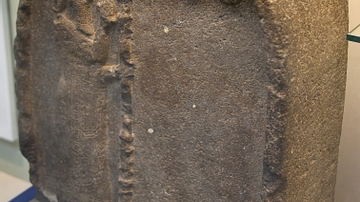
Image
Stela of Nabonidus
Here, Nabonidus (reigned 556-539 BCE) wears the traditional dress of a Babylonian king, holding objects symbolizing justice and power. Before him are the star of Ishtar, the winged-disc of Shamash, and the crescent moon god Sin, to whom Nabonidus...
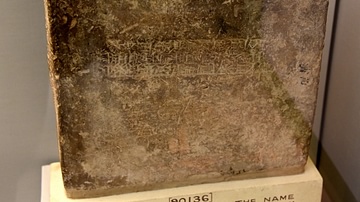
Image
Brick Stamped with the Name of Nebuchadnezzar II
King Nebuchadnezzar II's building program at Babylon used around 15,000,000 baked bricks. Thousands bore his name and titles stamped into the clay: "Nebuchadnezzar...the eldest son of Nabopolassar, King of Babylon, am I". On this brick, a...
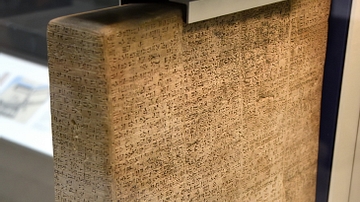
Image
The East India House Inscription
Building Babylon: this inscribed stone was found at the ruins of Babylon and described the religious devotion and civic achievement of king Nebuchadnezzar II. The long inscription records that as well as building the Processional Way and...
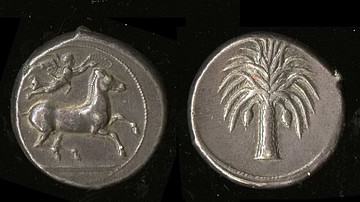
Image
Carthaginian Silver Coin
A Carthaginian silver coin, depicting Nike above a horse and a palm tree, minted in Carthage, 5th-4th century BCE.
The British Museum, London.
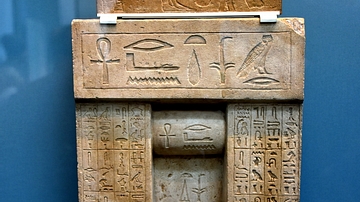
Image
Flase door Stela of Niankhre
This small limestone false door comes from the mastaba-tomb of the Superintendent of the Hairdressers of the Palace Niankhre. On the rectangular panel at the top, the dead man sits before a table of offerings. The central door-niche is inscribed...
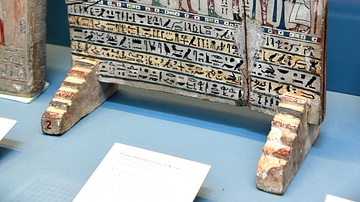
Image
Painted Wooden Stela of Neswy
The gilded wooden statuette represents the "Ba" of Neswy perching on the top of the stela. The painted scenes below, from top to bottom: the winged sun-disc flanked by goddesses Nekhbet and Wadjet as serpents, and by jackals representing...
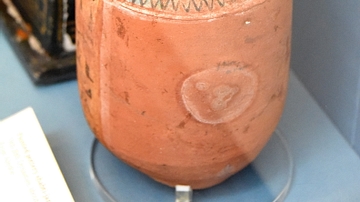
Image
Painted Pottery Shabti-Jar
From Abydos, Egypt. 19th to 20th Dynasties, circa 1295-1070 BCE. (The British Museum, London)
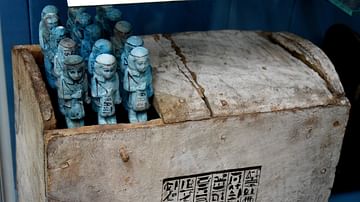
Image
Shabti Box
Painted wooden shabti box of of the priest of Amun Amenhotep containing blue faience shabtis. There are 6 columns of Hieroglyphic inscription on one side. From Thebes, Egypt. 21st Dynasty, 1070-945 BCE. (The British Museum, London)
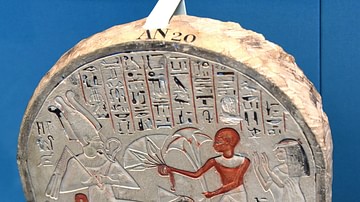
Image
Egyptian Stela of Bakkay
A painted limestone stela where the deceased offers flowers to Osiris. Below, offerings are made to a couple named Huy and Henutnofret by four members of their family. From Egypt. 18th Dynasty, reign of Amenhotep III, circa 1390-1352 BCE...
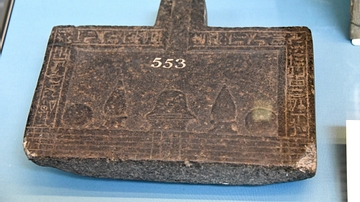
Image
Egyptian Offering table of Amenemhat
The surface of this black granite offering table is carved in relief with images of food and drink offerings. From Egypt. 12th or 13th Dynasty, circa 1985-1750 BCE. (The British Museum, London)